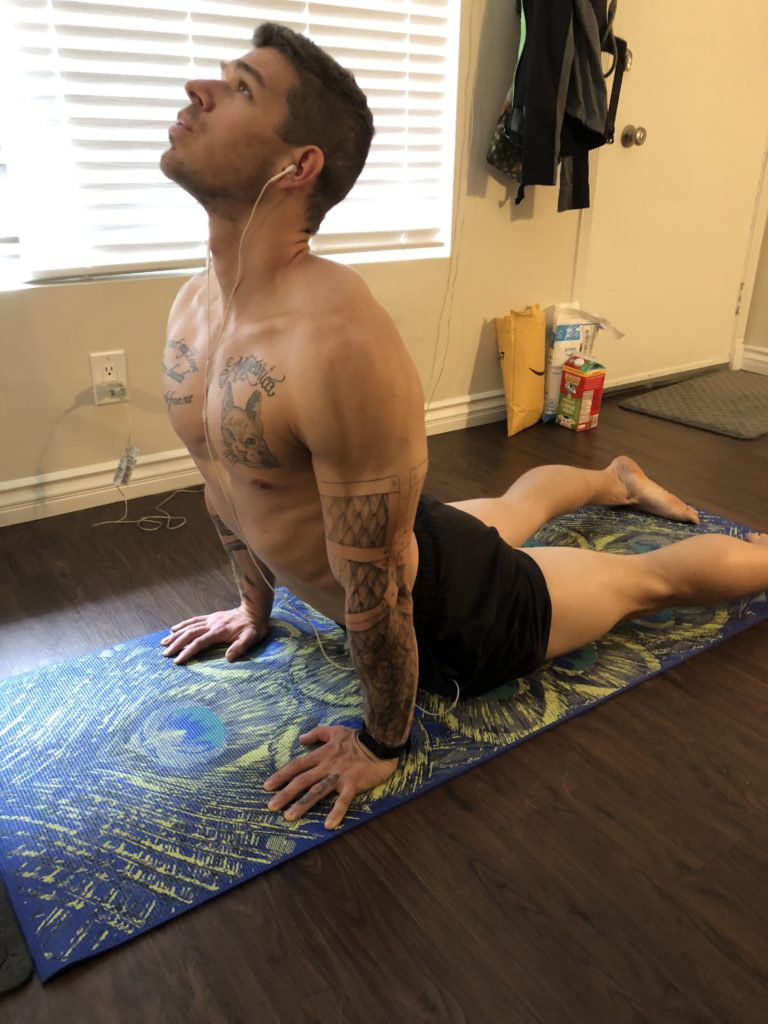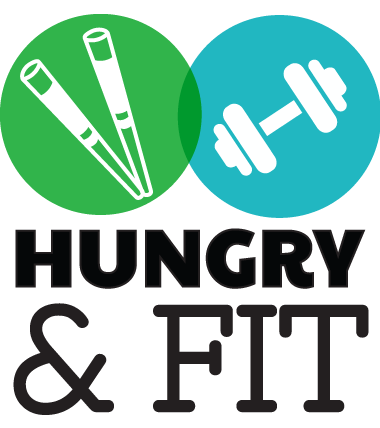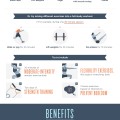Note that I didn’t say rest. There are some people out there (looking at you, Hungry) who believe in zero rest days and that’s okay as long as they balance properly. I (Fit here) go for one rest day a week and sometimes it’s a rest and recovery day.
What is a recovery day? A recovery day could mean a full rest day where you don’t workout, letting your muscles recover. Other forms of recovery days include yin yoga to really stretch, massage (self or professional), using heat (like a bath or heating pad), self myofascial release (think: rolling out muscles with a hard object), incredibly light lifting to just get your joints loose, or maybe a long walk or easy hike. As you can tell, a recovery day is really up to you. It’s about what you need that day after a week (or a few days) of workouts. It’s about getting in tune with your body and actually listening to it rather than forcing it. For example, my recovery day today consisted of a short yoga session focused on upper back stretches and using a massager on my back. If you can’t tell, my upper back is bugging me.

Why is it important? I could produce a very long list of why you need a recovery day in your life, but I’ll keep it to the reasons I find most relevant.
1. Because your body needs it. You work hard each day and you do your various workouts throughout the week. If you’re like me, you don’t stretch enough at the end of the workout, despite pushing yourself really hard. You beat your body up without giving it much of a rest. It needs a day to process all the work you’ve put in, to rebuild, and to recover.
2. Because you need to listen to your body. When you are constantly pushing your body to work harder, faster, stronger, you’re not giving it much of a chance to speak. Being quiet and still for a day lets your body get a word in and tell you what it needs. This is vital information. Not only can it save you from injury (see below), but it can also help you in guiding the next workouts. Where is it lacking? Where does it need strength? Flexibility? And so forth. Listen to your body! Ultimate rule.
3. So you don’t get injured. This connects directly with #2. If you don’t listen to your body, you’re bound to eventually get injured. We’ve all been there, beaten and tired, but we need to get a workout in so we go in and push and end up injuring ourselves. I’m not saying don’t workout if you get a toe cramp. Spend time on listening to your body so that you can tell the difference between an excuse and a need for rest. Far too often, we push ourselves over the edge and defeat the purpose of the workout in the first place. Take a recovery day and repair those tired parts of you.
4. Because your mind and spirit could use some health too. What often comes with recovery and rest is mental health and ease. Our minds could be as tightly wound as our bodies, but we don’t stop long enough to take care of it. A lot of the recovery examples I gave at the beginning have an easy connection to mental health. They are recovery techniques that are slow, methodical, and thoughtful. It can be an easy step to connect them to a meditation or just generally being mindful. Anything helps. Having a healthy mind is incredibly helpful to creating a stronger body.
I only listed four and those are pretty important. That should be enough to convince you, I think! Never ever think of a recovery day as you being lazy. That’s damaging to your mental well-being and simply not true. Having a recovery day can be active rest: you’re stretching, you’re massaging, you’re meditating. If you get down on yourself for a recovery day, you’re doing it all wrong. It’s not about going 24/7, it’s about working smart so that you can be the best you can be. You can’t be a machine without oiling your parts every now and then. Be smart, be humble, be mindful. Take a recovery day to stay hungry and fit!











